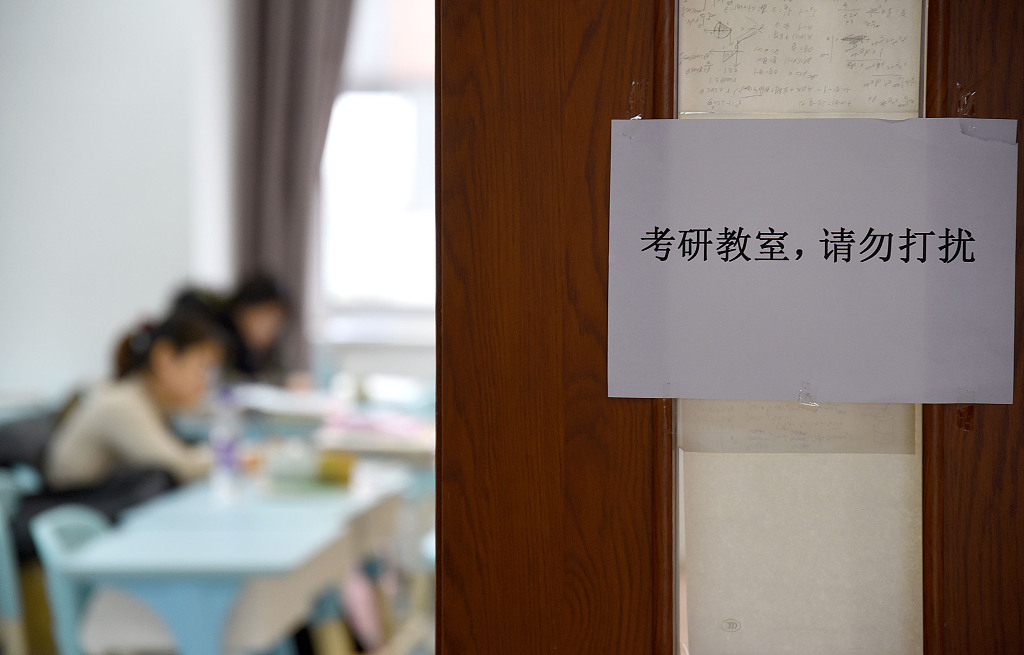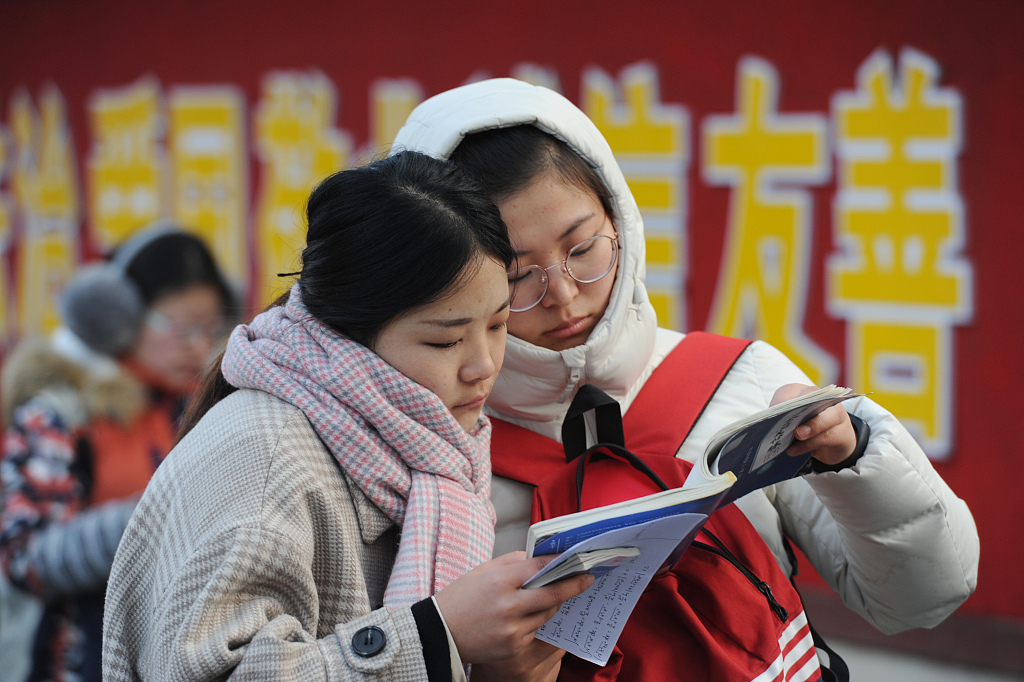China's National Postgraduate Entrance Examination (NPEE) for 2020 ended on December 22, ushering in a moment of relief for candidates after months of struggle.
Earlier, the ministry of education announced that 3.41 million students had entered the examination this year, breaking the three million mark for the first time.
The number of people taking part in the NPEE has been on the rise in recent years. According to the report, the number of people who took part in the NPEE surged by 520,000 last year compared with the year before, and this year saw another 510,000 more than 2018.
However, in the past five years, the number of applicants for the NPEE has increased much faster than the number of enrollment.
And the reason these people partake in the examination is also different.
Meng Chenzhen, a civil engineering graduate from a Project 985 university in Beijing wanted to go to Shanghai Jiao Tong University (SJTU) for further studies. He left school in early July and went straight to Shanghai, where he rented an apartment near SJTU six months in advance.
Huang Yixin, a senior student at SJTU, is still studying at his university. He likes his major of Control Technology and Instruments. He feels that his undergraduate courses are not enough, so he has to continue with postgraduate studies.
Gong Yehan, a senior at the School of Statistics and Management at Shanghai University of Finance and Economics (SUGE) applied for the Department of Statistics at the Central University of Finance and Economics in Beijing because she wanted to go to the capital.

The classroom for the candidates of NPEE. /VCG Photo
The classroom for the candidates of NPEE. /VCG Photo
Liu Daqing, who has applied for the Department of Electronic Engineering at Xiamen University, said he took the entrance exam mainly to find a good job and gain more initiative in the future. He noted that social competition pressure is too big, and the undergraduate graduate salary is rising slowly right now. Also, some positions also have explicit graduate qualifications.
Liu added that he does not have the confidence to obtain employment immediately after graduation from his degree alone.
In recent years, the popularity of the NPEE has been increasing, with a variety of factors prompting candidates to apply for the exam, according to the "National Graduate Enrollment Survey Report for the Year 2020," which was released on December 18.

Candidates who have finished the examination. /VCG Photo
Candidates who have finished the examination. /VCG Photo
One of the main motivations for choosing to take the NPEE is to improve the core competitiveness of employment. Another main motivation is to enhance their knowledge structure and cultural level, as the report said. And the third motivation is to take the exam to obtain a postgraduate degree.
At present, the steady development of economy and structural transformation in China have brought forward the urgent demand for high-level personnel training, and candidates have increasingly higher requirements for improving their competitiveness.
An advanced degree can bring advantages but also come at a great cost to time. "The role of education background in recruitment is still there," said Chu Zhaohui, a researcher at the National Institute of Education Sciences, he said there are also problems behind the craze for NPEE.
Although an advanced degree can bring advantages, the comparative time and opportunity cost is also higher and candidates should take their conditions and career plans into account and make a rational decision, Chu added.